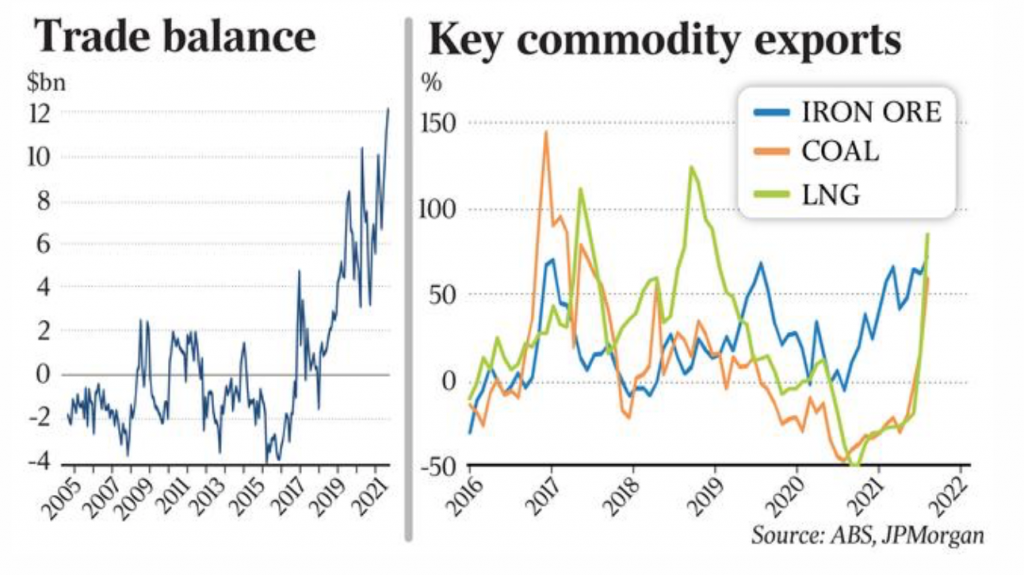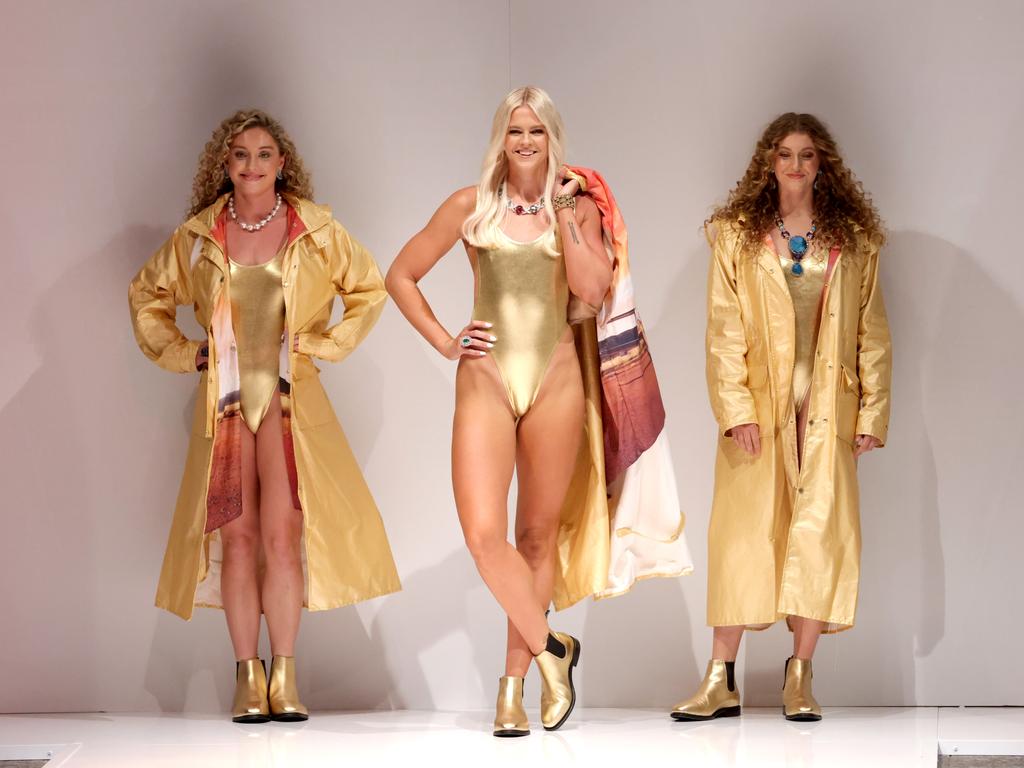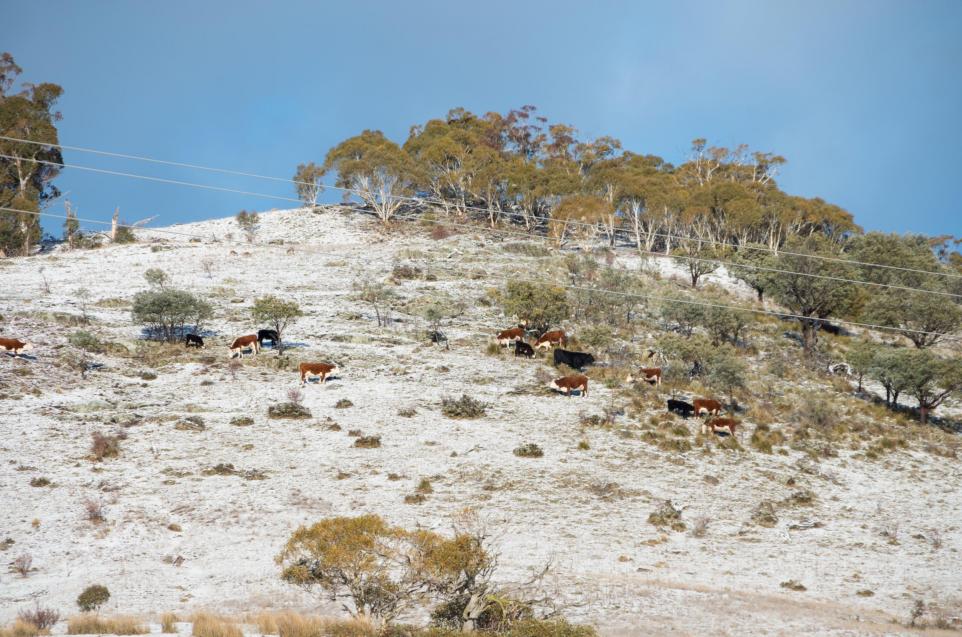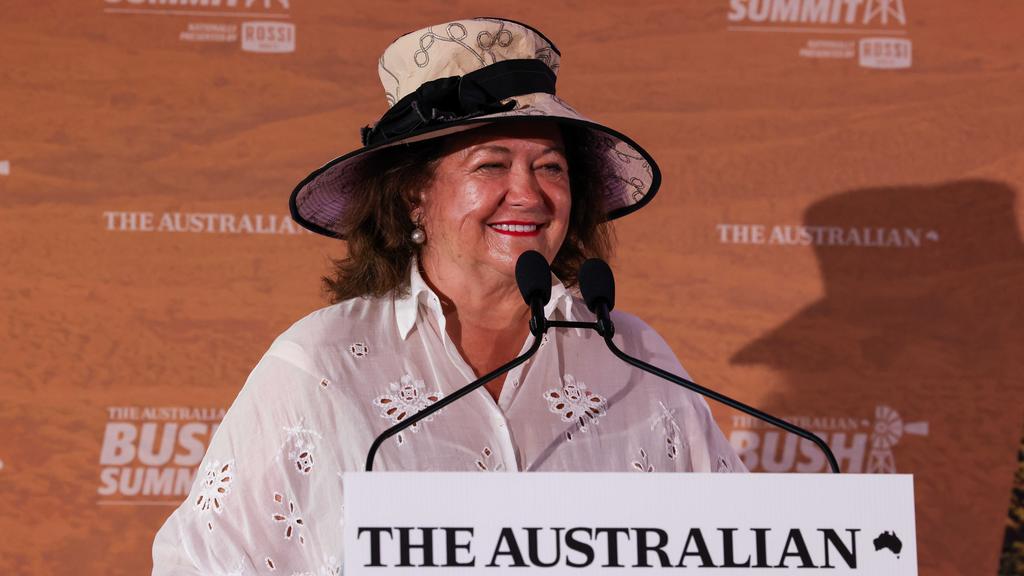Article by Patrick Commins courtesy of the Australian.

Australia’s historic commodities export boom extended into the current quarter, as soaring LNG, iron ore and coal sales pushed the trade surplus to a record $12.1bn in July.
A 7.5 per cent lift in resources exports underpinned a 5 per cent monthly increase in the value of goods and services exports to $46bn, Australian Bureau of Statistics data showed.
Iron ore exports were up 3.5 per cent against the previous month to $19.1bn in July, on a seasonally adjusted basis, and were 66 per cent higher than a year earlier.
Coal sales – metallurgical and thermal – climbed 16 per cent to $4.4bn, up 53 per cent on July 2020. Liquefied natural gas exports jumped by 22 per cent in July, 81 per cent more than 12 months ago.
Rural exports also continued their strong run, lifting by 6 per cent in the month just shy of $5bn – 72 per cent higher than a year earlier.
Wool sales jumped 12 per cent to $405m – more than double July 2020 sales – while meat exports lifted 8 per cent in July to $1.3bn, 26 per cent higher than a year earlier. Cereal and grains exports eased 2.4 per cent in the month, but at $1.2bn was up 230 per cent on an annual basis.
Even as Australian miners and their shareholders enjoy super profits, Barclays economists said it was “unlikely that the iron ore sector can keep Australia’s merchandise surplus at records for much longer”.
The price of the key steel making commodity has declined by $US80/tonne since July 20 to $US145/tonne, and economists believe it will fall further as Chinese authorities look to curb steel production in order to limit carbon emissions.
“A softer Chinese economy further casts doubt (on) Australia’s exports,” the Barclays economists said in a note to clients. “A slowdown in China’s infrastructure investment will weigh, with iron ore exports slowing and coal exports already banned”.
Thermal coal exporters, however, are enjoying the highest prices for their product since March 2019, despite China blocking shipments since late last year.
The ABS figures showed international thermal coal sales increased by more than 10 per cent in July, in non seasonally adjusted terms. Export volumes to North Asia – primarily Japan, Taiwan and Korea – and Vietnam increased by double digits – coinciding with unusually warm weather that drove demand for electricity in those countries higher.

Economists said Covid lockdowns contributed to a 0.7 per cent slide in imported consumption goods. But that was more than offset by a 7 per cent leap in capital goods – such as machinery and industrial equipment – reflecting strong business investment in the month.
As experts foreshadowed a slackening of the mining export boom, Citi chief economist Josh Williamson said merchandise imports would climb in coming months as supply bottlenecks eased and household and business consumption remained robust, despite the disruptions from Delta.
“Moreover, we don’t expect the return of two-way international travel until mid-2022, so services exports and imports will likely remain dormant in the near term,” Mr Williamson said. “Consequently, we still believe that net exports will contribute negatively to growth this year, and the income boost to the economy from higher iron-ore prices is expected to moderate.”
Australia last recorded a trade deficit in December 2017.





